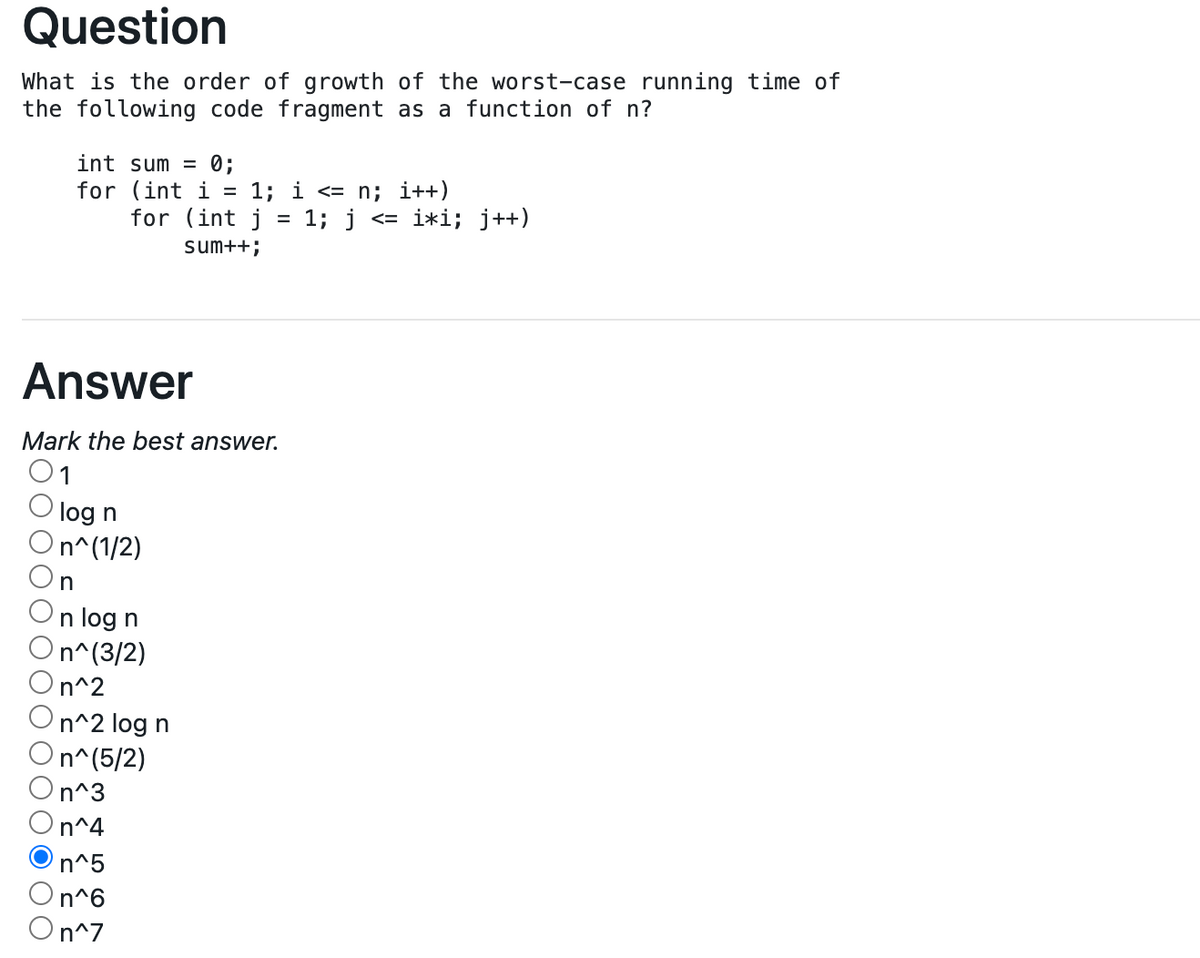Consider the following definition of a MysteryBox object: public class MysteryBox { private final int x0, x1, x2, x3; private final double y0; private final boolean z0; private final long[] a = new long [248]; ... } Using the 64-bit memory cost model from lecture, how many bytes does each object of type MysteryBox consume? Include all memory referenced by the object (deep memory Answer Your answer should be a positive integer that is a multiple of 8.
Consider the following definition of a MysteryBox object: public class MysteryBox { private final int x0, x1, x2, x3; private final double y0; private final boolean z0; private final long[] a = new long [248]; ... } Using the 64-bit memory cost model from lecture, how many bytes does each object of type MysteryBox consume? Include all memory referenced by the object (deep memory Answer Your answer should be a positive integer that is a multiple of 8.
Database System Concepts
7th Edition
ISBN:9780078022159
Author:Abraham Silberschatz Professor, Henry F. Korth, S. Sudarshan
Publisher:Abraham Silberschatz Professor, Henry F. Korth, S. Sudarshan
Chapter1: Introduction
Section: Chapter Questions
Problem 1PE
Related questions
Question
![Question
Consider the following definition of a MysteryBox object:
public class MysteryBox {
private final int x0, x1, x2, x3;
private final double y0;
private final boolean z0;
private final long[] a = new long [248];
}
Using the 64-bit memory cost model from lecture, how many bytes does each object
of type MysteryBox consume? Include all memory referenced by the object (deep memory).
Answer
Your answer should be a positive integer that is a multiple of 8.](/v2/_next/image?url=https%3A%2F%2Fcontent.bartleby.com%2Fqna-images%2Fquestion%2F88167701-6d3f-46b8-9f75-5ab21a2347bf%2F8e697a5c-15a4-49b7-9ce4-289f758c9ec6%2F443wc4h_processed.png&w=3840&q=75)
Transcribed Image Text:Question
Consider the following definition of a MysteryBox object:
public class MysteryBox {
private final int x0, x1, x2, x3;
private final double y0;
private final boolean z0;
private final long[] a = new long [248];
}
Using the 64-bit memory cost model from lecture, how many bytes does each object
of type MysteryBox consume? Include all memory referenced by the object (deep memory).
Answer
Your answer should be a positive integer that is a multiple of 8.

Transcribed Image Text:Question
What is the order of growth of the worst-case running time of
the following code fragment as a function of n?
int sum = 0;
for (int i
for (int j
1; i <= n; i++)
1; j
i*i; j++)
く=
sum++;
Answer
Mark the best answer.
01
'log n
On^(1/2)
n log n
On^(3/2)
n^2
n^2 log n
n^(5/2)
On^3
On^4
n^5
On^6
On^7
Expert Solution
This question has been solved!
Explore an expertly crafted, step-by-step solution for a thorough understanding of key concepts.
This is a popular solution!
Trending now
This is a popular solution!
Step by step
Solved in 5 steps with 1 images

Recommended textbooks for you

Database System Concepts
Computer Science
ISBN:
9780078022159
Author:
Abraham Silberschatz Professor, Henry F. Korth, S. Sudarshan
Publisher:
McGraw-Hill Education

Starting Out with Python (4th Edition)
Computer Science
ISBN:
9780134444321
Author:
Tony Gaddis
Publisher:
PEARSON

Digital Fundamentals (11th Edition)
Computer Science
ISBN:
9780132737968
Author:
Thomas L. Floyd
Publisher:
PEARSON

Database System Concepts
Computer Science
ISBN:
9780078022159
Author:
Abraham Silberschatz Professor, Henry F. Korth, S. Sudarshan
Publisher:
McGraw-Hill Education

Starting Out with Python (4th Edition)
Computer Science
ISBN:
9780134444321
Author:
Tony Gaddis
Publisher:
PEARSON

Digital Fundamentals (11th Edition)
Computer Science
ISBN:
9780132737968
Author:
Thomas L. Floyd
Publisher:
PEARSON

C How to Program (8th Edition)
Computer Science
ISBN:
9780133976892
Author:
Paul J. Deitel, Harvey Deitel
Publisher:
PEARSON

Database Systems: Design, Implementation, & Manag…
Computer Science
ISBN:
9781337627900
Author:
Carlos Coronel, Steven Morris
Publisher:
Cengage Learning

Programmable Logic Controllers
Computer Science
ISBN:
9780073373843
Author:
Frank D. Petruzella
Publisher:
McGraw-Hill Education